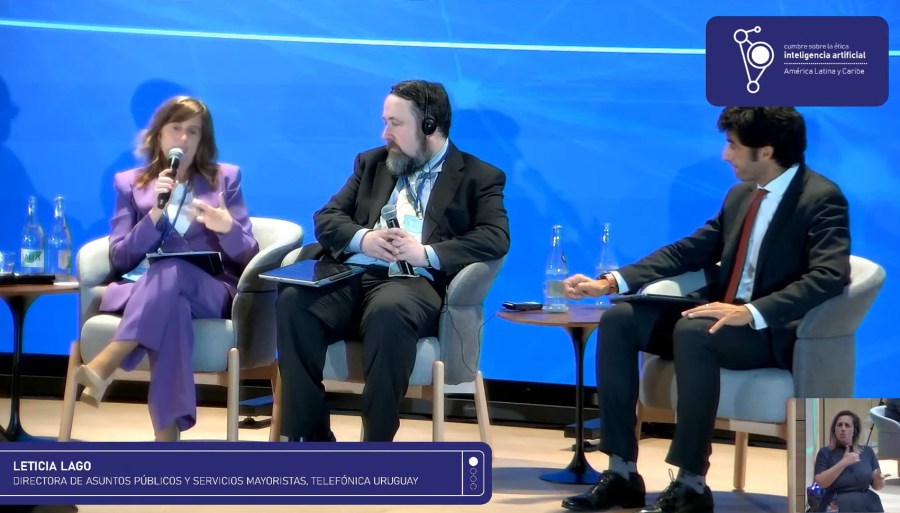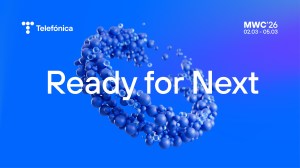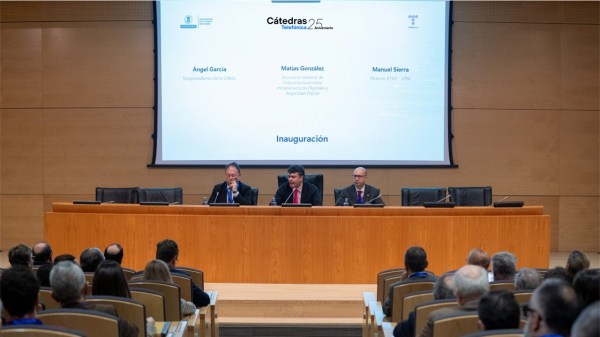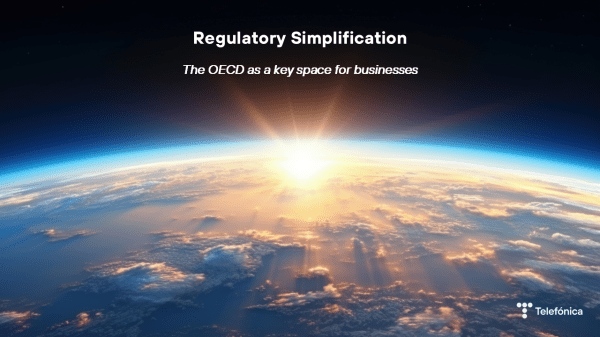The second UNESCO Ministerial Summit on the Ethics of Artificial Intelligence (AI) in Latin America and the Caribbean was held in Montevideo (Uruguay) on 3 and 4 October.
The Summit, organised on this occasion by UNESCO, CAF and Agesic, continued to the work initiated by the first Ministerial Summit held in Santiago de Chile in October 2023, and strengthened the regional commitment to the ethics of AI.
On this occasion, its objective was to advance in the design of public policies for AI in an ethical manner for Latin America, aligned with the Unesco Recommendation on the Ethics of Artificial Intelligence. This Recommendation was approved in 2021 and promotes a comprehensive approach to the responsible use of AI, in the service of people and sustainable development, adopted by 195 Member States.
The Summit was attended by high-level representatives from more than 20 countries, as well as representatives from the private sector. During the Summit, regulatory and governance initiatives for AI were discussed. AI governance and regulatory initiatives already in place and strengthening regional cooperation in this area. It also discussed how to ensure the design and implementation of appropriate public policies that maximise the opportunities of artificial intelligence and minimise its risks. and minimise its potential risks. Progress was also made in establishing a regional work agenda and defining common strategies for more responsible AI development.
Latin America committed to the development of responsible and ethical AI
To this end, two key documents were adopted: on the one hand, the Montevideo Declaration, which confirms the region’s commitment to the development of an AI that protects human rights, fundamental freedoms and democracy. On the other hand, a regional Roadmap for AI, with 5 priority lines of action to be implemented in the next 12 months on (1) Governance and Regulation, (2) Talent and future of work, (3) Protection of vulnerable groups, (4) Environment, (5) Sustainability and Climate Change and Infrastructures.
The implementation of the Roadmap will be led by the governments of the region and the Working Group on AI, with the support of Unesco and CAF, ensuring effective coordination with other initiatives. Mechanisms will also be put in place to monitor and review progress every six months, promoting the visibility of actions and the participation of the various actors involved.
Concrete actions include the development of a methodology for designing regulatory proposals, the creation of a framework for AI literacy, and the development of studies on the impact of AI in different areas such as discrimination in public safety and environmental risks.
Ethical AI training: an essential pillar of successful AI development

For its part, the private sector is also making progress through the UNESCO Business Council on AI Ethics, co-chaired by Telefónica and Microsoft. Several companies met at this summit to assess how the private sector can actively contribute to closing the training and skills gaps in AI to ensure the implementation of responsible AI in the region, so that technology serves people and not the other way around.
Along with representatives from other companies such as Microsoft, Salesforce, Lenovo and the GSMA, Leticia Lago, Director of Public Affairs and Wholesale Services at Telefónica Uruguay, attended the meeting and presented the company’s responsible AI strategy. In 2018, Telefónica pioneered the adoption of responsible AI principles and the design of an innovative governance model for AI ethics to lead by example.
Another essential pillar for the adoption of responsible AI is the training of people in ethical AI. To this end, Leticia commented on the possibilities of training employees through reskilling and the recently launched Skillbanks platform, which allows us to improve our skills in a personalised way, adapted to each employee’s profile, using this technology. She also commented on the presence in Uruguay of the Digital Centre of Excellence, a global services hub that brings AI closer to the entire ecosystem in the region.
This training should also be extended to society as a whole. To this end, he presented the Hackathons programme, focused on identifying and developing AI skills, as well as the Employment Map, an AI-based tool that Fundación Telefónica makes available to people to promote their employability and the adoption of digital skills free of charge.
Public-private partnership for ethical AI training
During the debate, it was agreed that a call to action should be issued to all actors involved in the promotion of AI, both governments and companies, to work together:
- Training and employability opportunities in this field are disseminated.
- Training of citizens in the skills required for employment is promoted, making the necessary tools available and ensuring support through tutoring and mentoring.
- To collaborate so that, once trained and, where appropriate, certified, these citizens can be reintegrated or integrated into the world of work, connecting them with effective job opportunities.
In order to create a society based on responsible AI solutions, it is essential to have a public policy framework that includes ethical principles, as recommended by UNESCO since 2021 and other more recent initiatives by the United Nations, the OECD or the European Commission.
But it is also essential to have people trained and educated in this new disruptive technology like AI. To this end, we need to work together, from the public sector to the private sector, through public-private partnerships, to harness the opportunities of AI and reduce the risks, while protecting the most fundamental rights of our society. Only in this way can we all work together to build a successful and inclusive digital transformation that is people-centred, value-based and of benefit to all.












